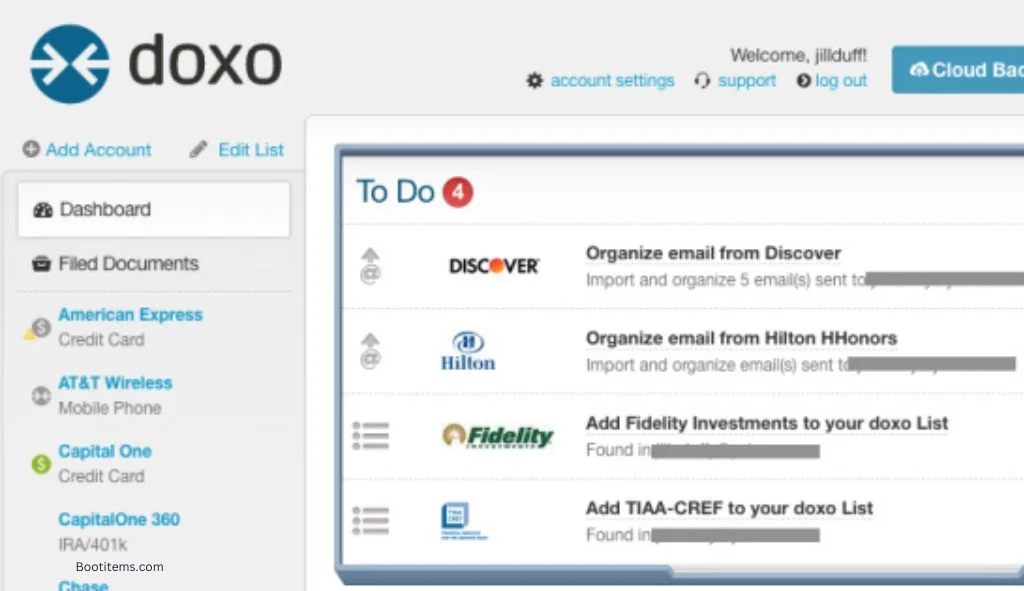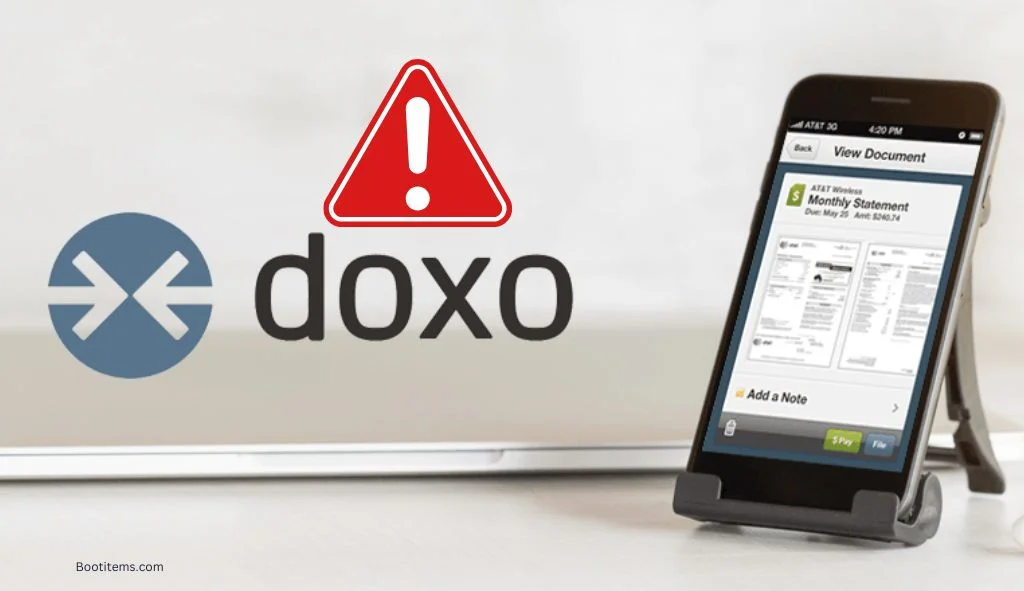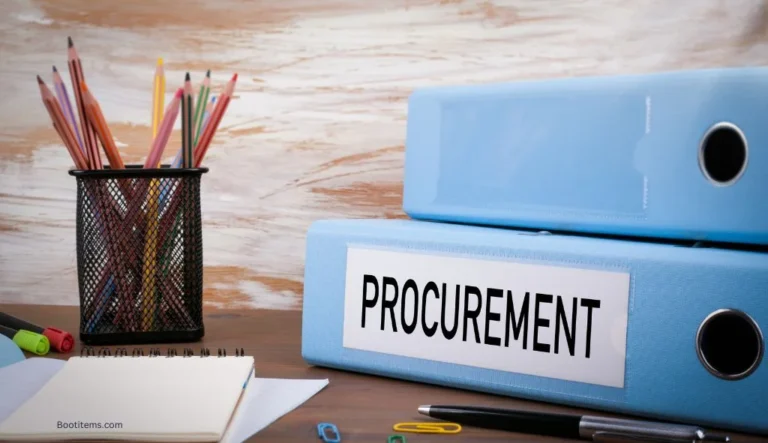Doxo Warning: Payment Service Risks & Safe Alternatives
Doxo is a third-party bill payment platform with numerous consumer complaints about payments not reaching billers, resulting in service disruptions and additional fees despite their marketing claims.
What is Doxo and Why Are There Warnings About It?
Doxo is a third-party online bill payment platform that allows users to pay various bills through their website or app. The service presents itself as a convenient way to manage and pay multiple bills in one place. Users can connect credit cards or bank accounts to make payments to service providers, including utilities, mortgages, and other billers.
However, numerous warnings have been issued about Doxo from government agencies, utility companies, and consumers. These warnings stem from a pattern of problematic practices that have left many customers facing serious consequences after using the service.
The company offers a subscription model called “doxo plus” for $5.99 monthly, which claims to eliminate payment fees. However, many users report that even with this paid subscription, they still encounter fees when using credit cards for payments. The primary benefit seems to only apply when using bank accounts for payments.
How Doxo Operates?
Doxo positions itself as an intermediary between consumers and their billers. When a consumer makes a payment through Doxo, the company typically:
- Charges the consumer immediately for the payment amount plus any applicable fees
- In many cases, prints a paper check that is mailed to the biller
- This process can take days or weeks before the biller actually receives the payment
This delay between when a consumer makes a payment and when the biller receives it has caused significant problems for many users. The Federal Trade Commission (FTC) has noted that this practice has resulted in consumers having their utilities shut off, insurance policies lapsed, and incurring late fees despite paying their bills on time through Doxo.
Official Warnings and Legal Actions
The warnings against Doxo come from multiple authoritative sources, indicating widespread concern about the company’s practices:
The Alabama Securities Commission has issued a formal warning urging residents to exercise “extreme caution” when using Doxo. The commission reported receiving complaints from consumers whose service providers did not receive payments made through the platform, resulting in service shutoffs.
Additionally, the ASC has issued an inquiry letter to Doxo requesting information about why the company is not registered as a money transmitter as required by the Alabama Monetary Transmission Act.
More significantly, the Federal Trade Commission (FTC) has filed a formal complaint against Doxo. The complaint alleges that the company:
- Regularly delays payments to official billers
- Sometimes fails to send payments at all
- Has caused consumers to be charged late fees and fines
- Has resulted in missed child support payments
- Has caused utility shutoffs (water, gas, internet, electricity)
- Has led to car insurance lapses for customers
According to the FTC filing, “Doxo’s deception has caused consumers to pay millions of dollars in junk fees, which in the bulk of cases could have been avoided if they paid their biller directly.”
The FTC complaint further alleges that Doxo violated the FTC Act, the Restore Online Shoppers’ Confidence Act, and the Gramm-Leach-Bliley Act.
Consumer Complaints and Experiences with Doxo
The Better Business Bureau (BBB) and various online forums contain numerous complaints from consumers who have had negative experiences with Doxo. These complaints reveal consistent patterns of issues that potential users should be aware of.
Payment Processing Problems
One of the most common complaints involves payments not reaching the intended recipient despite being processed by Doxo. A typical complaint filed with the BBB describes a situation where a consumer paid a hospital bill through Doxo, but the hospital never received the payment.
In this particular case, Doxo allegedly sent a check to a PO box associated with the larger healthcare company that owned the hospital, but the payment was not properly applied to the consumer’s hospital bill. Despite the healthcare company cashing the check, the consumer’s bill remained outstanding, effectively forcing them to pay twice.
The hospital billing helpline reportedly told this consumer that similar situations had happened to other patients recently, suggesting this was not an isolated incident.
Deceptive Marketing Practices
Many consumers report being misled into using Doxo when they were actually trying to pay their bills directly to the service provider. Complaints frequently mention that Doxo’s marketing makes it appear as though they are the official payment portal for various billers.
One consumer described receiving what appeared to be an official bill from a hospital with instructions to pay through Doxo. Only after the payment failed to reach the hospital did they realize that Doxo was not affiliated with the healthcare provider.
The FTC complaint against Doxo specifically addresses this issue, noting that the company “intercepted consumers trying to reach their billers and tricked them into paying millions of dollars in junk fees,” according to Samuel Levine of the FTC.
Additional Fees and Charges
Despite marketing that suggests otherwise, many users report being charged unexpected fees when using Doxo. A Reddit user who subscribed to Doxo Plus for $5.99 monthly reported that the service still added fees when they tried to pay with a credit card, contrary to what was advertised.
Other users report being enrolled in recurring payment subscriptions without their explicit consent, a practice also noted in the FTC complaint.

Warnings from Service Providers About Doxo
Numerous service providers across the country have issued explicit warnings to their customers about using Doxo. These warnings come from utilities, healthcare providers, and other organizations that have experienced problems with payments made through the platform.
Utility Companies’ Warnings
Valley Public Service Authority has issued a clear warning on their website: “DO NOT USE DOXO TO PAY YOUR BILL.” They explicitly state that they are “in no way affiliated with this service.”
Similarly, the City of Columbia has urged residents to avoid using Doxo for paying city utility and parking bills. Wichita Valley Water Supply Corporation has also issued a warning, explaining that “doxo.com may charge extra fees, and we cannot control when your payments will be received from doxo.com, possibly resulting in a late payment from your customer even disconnection due to non-payment.”
Iredell Water Corporation echoes these concerns, warning that “doxo.com may charge the member extra fees, and Iredell Water Corporation cannot control when we will receive the member payments from doxo.com, possibly resulting in a late payment from the member or even disconnection due to non-payment.”
Healthcare Provider Warnings
Holland Hospital has issued a customer warning about Doxo, stating: “While it appears to be affiliated with Holland Hospital, it is NOT.” They warn that “Doxo.com charges customers extra fees, and payments made through doxo.com are not delivered to the intended recipient right away. Holland Hospital cannot control when we receive payments made through doxo.com.”
Insurance Provider Warnings
Michigan Basic Property Insurance Association has published a warning about Doxo, stating: “Michigan Basic Property Insurance Association DOES NOT endorse DOXO or any information on DOXO’s sites. DOXO is an independent entity and Michigan Basic Property Insurance Association does not control or endorse them, has no contract with them, and is not affiliated with them in any way.”
They further warn that “doxo.com may charge extra fees, and Michigan Basic Property Insurance Association cannot control when Michigan Basic Property Insurance Association will receive payments from doxo.com, possibly resulting in late payment penalties or fees or other issues due to non-payment.”
How Doxo Attracts Consumers
Understanding how Doxo attracts consumers is important for avoiding potential issues with the service. The company uses several strategies that have been criticized by regulators and consumers.
Search Engine Optimization and Advertising
Doxo appears to invest heavily in search engine optimization (SEO) and advertising to appear prominently when consumers search for ways to pay their bills online. Many consumers report finding Doxo when searching for their service provider’s payment options.
The FTC complaint notes that complaints about Doxo’s practices were so numerous that, in 2021, employees of a major search engine declared Doxo’s ads to be “super misleading,” yet the company still has not changed the fundamental structure of its ads.
Mimicking Official Payment Portals
Multiple complaints suggest that Doxo designs its payment pages to resemble official payment portals of service providers. This can lead consumers to believe they are paying their biller directly when they are actually using a third-party service.
One BBB complaint specifically mentions that “Doxo sent a paper mailing to our house that convincingly mimicked an official request for payment from the hospital.” This practice makes it difficult for consumers to distinguish between official payment channels and Doxo’s third-party service.
Data Collection and “DoxoInsights”
According to some critics, Doxo operates a “big data scheme” called DoxoInsights, which they allegedly use to generate statistics about consumer payment behavior. These statistics are then used in media articles that promote the company.
Critics argue that these statistics are “highly skewed as it’s only data on the people they prey upon,” suggesting that the company uses this data for marketing purposes while potentially misleading consumers about the representative nature of their insights.
Why Is Self-Discipline The Key To Becoming A Good Saver?
Alternatives to Using Doxo
Given the numerous warnings and complaints about Doxo, consumers should consider safer alternatives for paying their bills. Most of these alternatives are free and more reliable.
Direct Payment Through Service Providers
The safest and most reliable way to pay bills is directly through the service provider’s official channels. Most companies now offer multiple payment options, including:
- Official websites with online payment portals
- Official mobile apps
- Phone payment systems
- In-person payment at local offices
- Mail-in payments
Using these official channels ensures that payments are properly credited to accounts without unnecessary delays or additional fees.
Bank Bill Pay Services
Most banks and credit unions offer free bill pay services as part of their checking accounts. These services allow customers to:
- Set up one-time or recurring payments
- Pay virtually any biller, even those that don’t accept electronic payments (the bank will print and mail a check)
- Track payments through their banking portal
- Receive confirmation when payments are processed
As one Reddit user pointed out, “Most banks and credit unions have online bill pay for free now, and will mail a paper check if necessary.” Another noted, “My bank, on my free checking account, offers this. I can login to pay bills and send checks for any amount to anybody, even personal checks and it will be official and they pay the postage.”
Counter Checks and Money Orders
For those who prefer not to use online services, other options include:
- Counter checks from your bank (usually free or very low cost)
- Money orders (available at banks, post offices, and many retail stores)
- Cashier’s checks for larger payments
As one commenter suggested, “You could’ve walked into your bank (if you have a physical location) and had them give you a counter check, they’re usually free or extremely cheap.”
What to Do If You’ve Used Doxo and Experienced Problems
If you’ve already used Doxo and encountered issues with your payments, there are several steps you can take to address the situation.
Contact Your Service Provider
The first step should be to contact the company you were trying to pay. Explain that you made a payment through Doxo and want to confirm whether they received it. If they haven’t received the payment:
- Ask for guidance on how to proceed
- Request any documentation they can provide showing the payment wasn’t received
- Inquire about options for waiving late fees given the circumstances
Request a Refund from Doxo
If your payment didn’t reach the intended recipient, contact Doxo to request a refund. Be prepared to provide:
- Your account information
- Payment details (date, amount, confirmation number)
- Evidence that the biller didn’t receive the payment
As one Reddit user advised, “If your water company doesn’t receive the payment, request a refund from doxo.”
Dispute the Charge with Your Bank or Credit Card Company
If Doxo refuses to provide a refund, you may be able to dispute the charge through your bank or credit card company. This is especially relevant if you paid using a credit card, which typically offers stronger consumer protections.
“If they won’t give [a refund], try to escalate through your bank/credit card company (depending on how you paid) and see if they can handle it as a fraudulent transaction and refund you.”
File a Complaint with Regulatory Agencies
Consider filing complaints with relevant regulatory agencies, which can help build cases against deceptive practices and potentially assist in resolving your specific issue:
- Federal Trade Commission (FTC)
- Consumer Financial Protection Bureau (CFPB)
- Your state’s attorney general’s office
- Better Business Bureau (BBB)
The more documentation you can provide about your experience, the more helpful these complaints will be.
Understanding the Legal Issues Surrounding Doxo
The FTC’s complaint against Doxo alleges violations of several important consumer protection laws. Understanding these legal issues provides context for the warnings about the company.
FTC Act Violations
The FTC Act prohibits “unfair or deceptive acts or practices in or affecting commerce.” The FTC’s complaint suggests that Doxo’s marketing practices and business model may violate this fundamental consumer protection law by misleading consumers about their relationship with billers and the fees associated with their service.
Restore Online Shoppers’ Confidence Act
This law includes provisions requiring clear disclosure of terms and conditions for online transactions and prohibiting certain types of negative option features in online sales. The FTC alleges that Doxo violated this act, possibly in relation to enrolling consumers in recurring payment subscriptions without explicit consent.
Gramm-Leach-Bliley Act
This financial privacy law requires financial institutions to explain their information-sharing practices to customers and to safeguard sensitive data. The allegation that Doxo violated this act suggests potential issues with how the company handles consumer financial information.
Money Transmission Laws
The Alabama Securities Commission’s inquiry about Doxo’s registration status as a money transmitter highlights another potential legal issue. Money transmission laws typically require companies that transfer funds on behalf of consumers to be properly licensed and to maintain certain financial reserves to protect consumer funds.
Protecting Yourself from Third-Party Payment Risks
The numerous warnings, complaints, and legal actions related to Doxo highlight the risks of using third-party payment services, especially those not officially endorsed by your service providers.
To protect yourself from these risks:
- Always verify that you’re using the official payment channel for any biller by going directly to their website or calling their customer service number.
- Be skeptical of search results and ads that appear when searching for payment options, as they may lead to third-party services like Doxo.
- Take advantage of free bill payment services offered by your bank or credit union rather than paying for third-party services.
- If a payment option charges fees, investigate whether there are fee-free alternatives available directly through your service provider.
- Keep records of all payments, including confirmation numbers, dates, and amounts, regardless of which payment method you use.
- Regularly check your accounts to ensure payments have been properly credited, especially when using a new payment method for the first time.

Samantha Yates is a creative writer and journalist with expertise in content creation and editing. She holds an MA in Creative Writing and brings professional experience from Lionbridge, where she developed engaging content for leading technology companies







